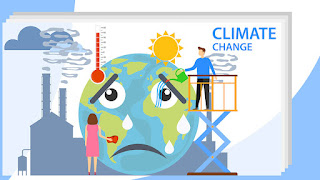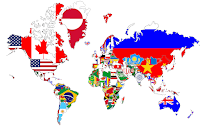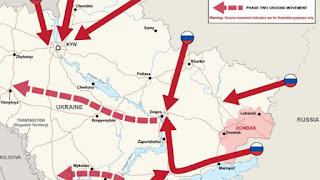When people take to the street to protest this is often supposed to be a sign of democracy in action. People who believe that their concerns about the climate change, Covid lockdowns, racism and so on are not being adequately addressed by the political system make a public display of how many of them care a lot about it so that we are all forced to hear about their complaint and the government is put under pressure to address it.
Monday, 12 December 2022
Sunday, 23 October 2022
How Many Children's Lives Is That Worth?
Take the median of the GiveWell figures: $4,000. I propose that prices for all goods and services should be listed in the universal alternative currency of percentage of a Child’s Life Not Saved (%CLNS), as well as their regular prices in Euros, dollars, or whatever. For example, a Starbucks Frappucino might be priced at 5$ /0.13%CLNS. A Caribbean holiday cruise might be priced at $8,000/ 200%CLNS (perhaps written as emojis🪦🪦)
Sunday, 28 August 2022
On The Incoherence Of The Claim That 'Taxation Is Theft'
First, unlike theft, taxation is legal - and this turns out to be a more significant difference than it first seems since we rely on laws to determine who owns what. Second, taxation is a device for solving collective action problems and thus allowing us (by coercing us) to meet our moral obligations to ourselves and each other - including our obligations to respect each others' property rights. One can't coherently be in favour of enforcing property rights, e.g. by having a police force and judges to catch and punish thieves, without also being in favour of a sustainable system for funding that enforcement.
Wednesday, 13 July 2022
Taking Decolonization Seriously Means Recognising the Moral Agency of Non-Western Political Actors
- War: If a Western country is involved in a war (or an ally - as in the case of Saudi Arabia in Yemen) then they are routinely assigned the entire responsibility for that war, including for all the terrible things done by those they are fighting.
- Illiberalism: Government oppression of religious and sexual minorities, political opposition, free press, and so on is routinely attributed to 'colonial era laws' or continuing Western ideological influence.
- Misgovernance: Government dysfunction and corruption are routinely blamed on Western consumers/companies' demand for natural resources; terrible environmental and labour regulations (or enforcement) are likewise blamed on Western demand for cheaper products
Sunday, 3 July 2022
To Solve The Global Food Crisis We Must First Stop Fixating On Putin
Saturday, 2 July 2022
We Should Fix Climate Change, But We Should Not Regret It
 |
Climate change is a huge and urgent problem. It is natural to suppose that it is therefore a terrible mistake, an unforced error that we should regret and try to prevent ever happening again.
I disagree. Climate change is the unfortunate outcome of the economic growth that has transformed human civilisation for the better. We cannot regret climate change without regretting the vastly better world for most people that the fossil-fuel powered technological revolutions of the last 250 years have achieved. Nor should we draw the anti-technology lesson that solutions are always worse than the original problems, that humans should retreat to living within the bounds of nature rather than attempting to escape them.
Sunday, 26 June 2022
Abortion Bans as Conscription
Saturday, 25 June 2022
Putting Women In Charge Is Not The Way To Make The World Better
There is no good evidence for these claims. They seem to rely on the question begging assumption that the best explanation for why people in charge of things seem so often seem incompetent, mean, self-serving, unresponsive to their constituents' needs, and so on is that they are men. This framing is then used to cherry pick anecdotes about female prime ministers/CEOs that support the possibility, but not the probability that women would do things better.
As a general rule, we should reject claims supported by inadequate evidence. We should also be careful to distinguish moral claims about fairness in the competition for power from claims about how that power would be exercised. The first moral problem of power is whether it is used rightly and for the good. The moral problem of fair opportunity to gain power is a secondary and far less significant moral problem. To put it another way, we should care less about the gender of the super competitive alphas who get the top jobs in our society, and more about the poor saps who will be ruled by them.
Assuming that power is misused because it is held by men leaves us unprepared for the very probable discovery that things will be just as bad when most things are run by women (which in some countries is only a couple of decades away). This is because it is institutions rather than gender that select, train, and constrain those who wield power, and it is highly questionable whether and how far those institutions would be changed merely by changing the gender of those in charge. Instead of trying to control how power is exercised by changing the gender of those in charge, we should focus directly on restructuring the institutions of power, for example by making political leaders more legally accountable and empowering employees with workplace democracy. The aim should be to ensure that whether the people in charge are men or women, they are no longer able to behave like bullies or tyrants.
Saturday, 11 June 2022
No, Poor Countries Shouldn't Try To Make Their Own Covid Vaccines
 |
| Source: UNDP |
Sunday, 5 June 2022
Philosophy Belongs in the Sciences, Not the Humanities: A Rant
Saturday, 28 May 2022
Four Reasons Not To 'Trust The Experts'
Monday, 2 May 2022
Just End Poverty Now: The Case for a Global Basic Income
According to the World Bank’s latest figures, around 700 million people live in utter destitution, on less than $1.90 per day, poorer than the average pet cat in the rich world. It is easy to agree that this is a terrible thing. It has so far been much harder – even for philosophers – to agree on what should be done about it. Peter Singer, for example, argues that rich people should donate more to effective charities. Thomas Pogge argues that rich world citizens should stop their governments from supporting less than ideally just global institutions. Yet this intellectual debate is an unnecessary distraction. We already have all the moral agreement we need to act. Ending extreme poverty is not an intellectual problem but a practical one, and not even a particularly difficult one. We just need to find the people who are poor and give them enough money so that they aren’t poor anymore.
Monday, 18 April 2022
Why Governments Failed the Challenge of Covid and Capitalism Succeeded
- Corporations are better at globalisation than national governments
- Political incentives are less well aligned with the public interest than those for corporations
Sunday, 3 April 2022
A Dead Man's Switch Method for Insuring Against Dementia
What can be done to mitigate this risk? I propose a dead man's switch method for ensuring that your body cannot continue living without you in it.
Saturday, 12 March 2022
There Is No Such Thing As Countries
As any map will show you, the world is divided by political borders into spaces called countries. People and things can live in, come from, or go to these places.
But countries are not any more than that.
Firstly and most obviously, countries are merely a social construction. They are collectively produced fictions (like money, or religions) rather than mind-independent objects (like stones). Being fictional does not mean that countries do not matter, but it does mean that they only exist so long as enough people agree to act as if they do.
Secondly and more significantly, countries are places not agents. Places on a map cannot have interests or goals or take actions to achieve them. To think otherwise is to confuse the properties of one kind of thing with another. This category error infects not only general talk, but also much otherwise careful journalism and even academic analysis. For example, the influential Realist school of international relations is founded on the axiom that countries do (or ought to) act only in their national interest. This trades on two category errors: that countries (rather than governments) can act and that they have interests. The result is confusing and unfalsifiable nonsense about buffer zones, access to resources and so forth that is about as helpful for understanding, predicting, and managing conflicts as an astrological map.
Sunday, 20 February 2022
Invading Ukraine Can Only Be Bad For Russia
Tuesday, 11 January 2022
Replace Waiters With QR Codes














